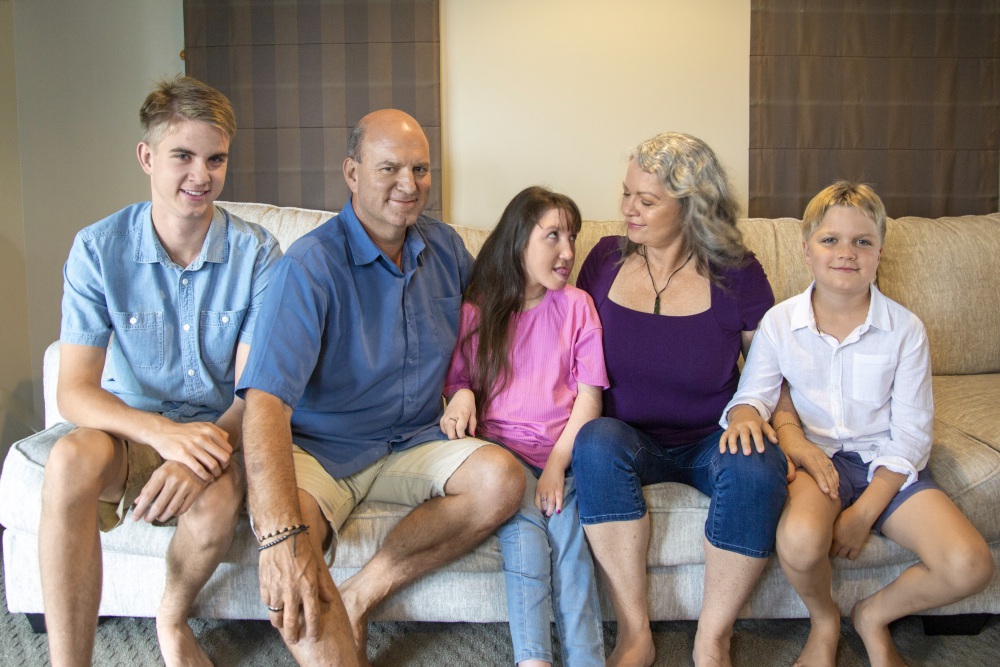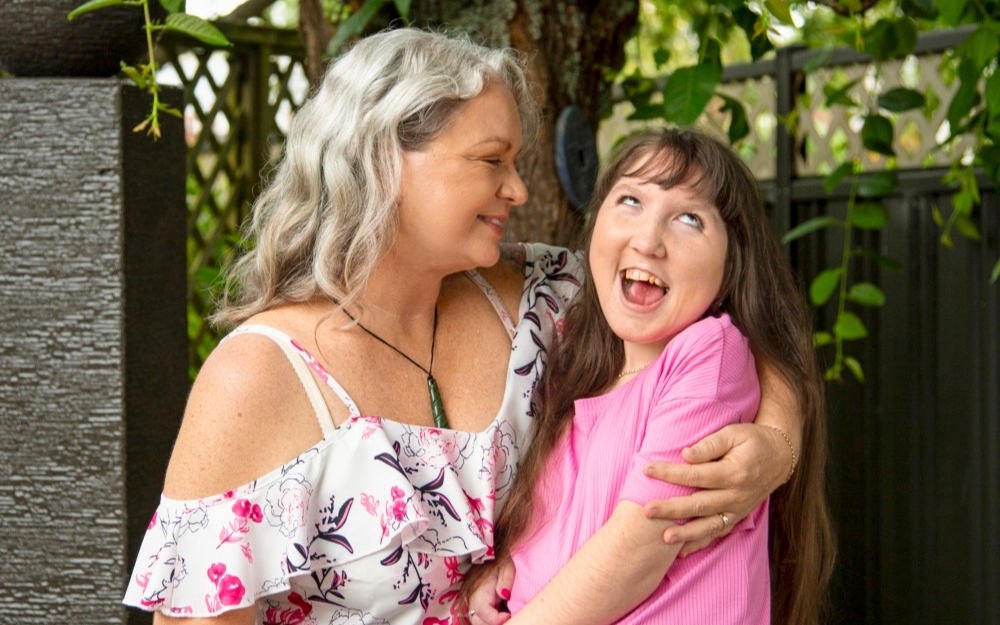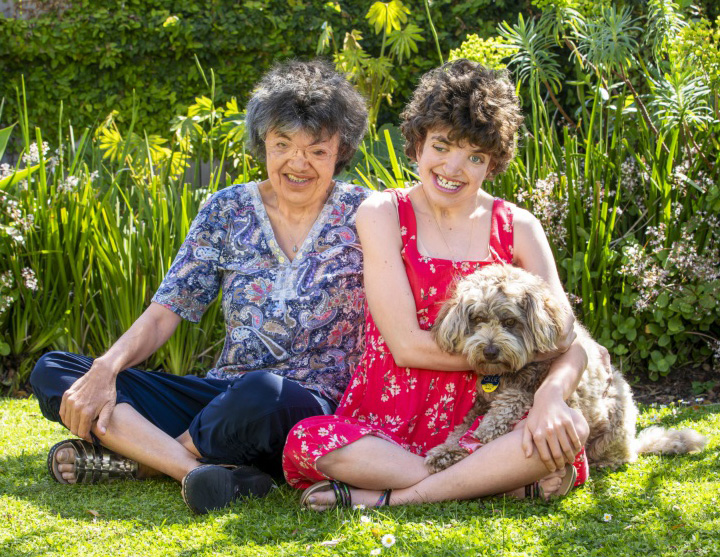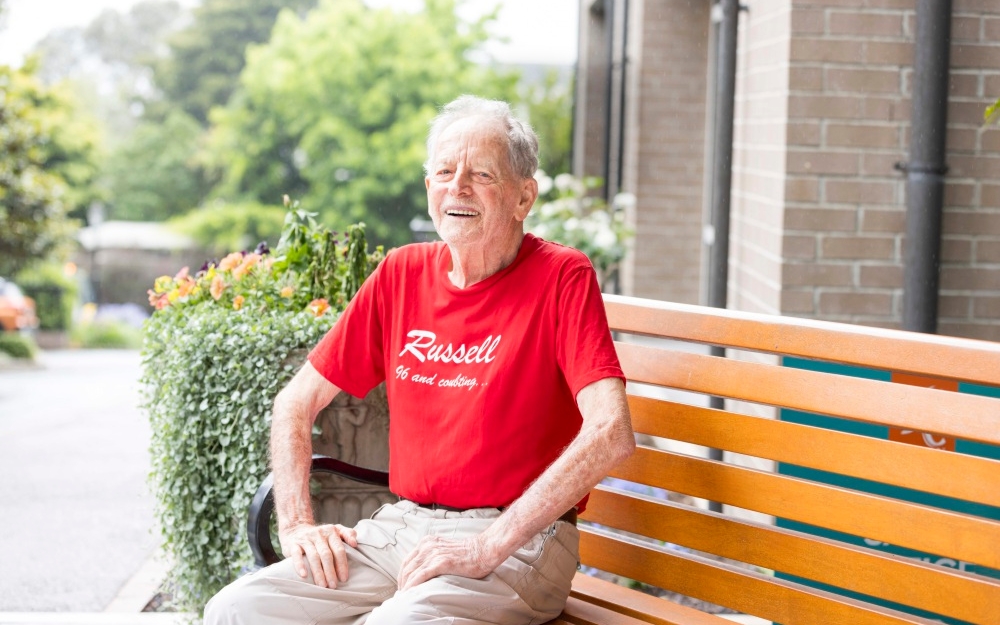When Charley Hooper turned 18 recently, there was a cake with candles, gifts of clothing and jewellery, and a chorus of Happy Birthday from her parents Jenn and Mark, as well as brothers Zak and Cody.
But it wasn’t an occasion for celebration. Every one of Charley’s birthdays is a traumatic anniversary of what Jenn describes as “the single worst day of our collective lives”, but this milestone one was particularly upsetting because it marked a future that’s even more fraught now that she’s legally an adult.
Charley suffered a catastrophic brain injury at birth during a botched delivery that left her profoundly disabled. She can’t speak, see or move and it’s thought she has the brain function of a four- to six- week-old baby. She couldn’t blow out the candles on her cake or even see them. She doesn’t understand the concept of what a birthday is.
Her parents have spent the last 18 years lovingly and diligently caring for her every need, making sure she has the best life possible. But now she’s an adult and eligible for a weekly ACC payment, called Loss of Potential Earnings (LOPE), they have to be monitored to make sure they’re acting with her best financial interests at heart. The scrutiny feels like a punishment, says her mother.
“For 17 years and 364 days we got on with looking after her, and the instant she turned 18, we have to be checked to make sure we’re not ripping her off,” says Jenn, 52. “I have to do accounts and provide receipts for every cent that gets spent, and I have to get audited every year. And if I do anything that is seen to be irresponsible in any way, then I can be fined or put in jail.
“I understand that the rules are in place to protect people, but the way it works, it just makes life harder for the families, when it is already strained and difficult. And because we knew this was coming, it made her 18th birthday all that much harder. Her birthdays are horrible anyway because they’re a reminder of what we’ve lost, but going through all of this has made it feel like she’s not Charley any more. She’s a legal risk.”

Dad and brother Cody wish Charley a happy birthday.
Jenn’s voice catches as she says, “This birthday nearly broke me. Because it was the start of all the legal stuff I now have to deal with, it was actually more traumatic for me than the day of her birth. Then, I didn’t know what was coming. We had hope that because she survived what happened to her, she was going to be okay. But she isn’t. And nor are we. We were all left disabled that day.”
Charley was a much longed-for baby – Jenn and Mark had been trying to get pregnant for eight years. She was born in Morrinsville’s Rhoda Read Birthing Unit on September 7, 2005. An irregular heartbeat was picked up during labour, and when she was delivered, she was floppy and not breathing. Two midwives tried to resuscitate her, but missed a vital step – clearing her airway first. After half an hour, they finally called for help, which was another half an hour away. That meant Charley was without adequate oxygen for an hour. Meanwhile, Jenn suffered a life-threatening haemorrhage.
At five months, Charley was diagnosed with severe cerebral palsy, spastic tetraplegia, epilepsy and cortical visual impairment. She needs around-the-clock care, which she gets at her Hamilton home from her parents. Zak, 17, and Cody, eight, also chip in.
Jenn, a food scientist who has also been a professional singer, forklift driver and bar manager, and architectural draughtsman Mark gave up their jobs to care for Charley. They live off carers’ payments from ACC.

Jenn is blunt about what the medical mishap has meant to the couple and their sons, Zak (left) and Cody. “We were all left disabled that day.”
Over the years, the Hoopers have learned to do things like suction saliva from Charley’s airway and lungs, and give her physiotherapy. They take care all of her toileting and hygiene needs, and spoonfeed her meals, which takes up to six hours a day. They’re up frequently through the night to check on her breathing and change her position.
In their quest to make life as easy as possible for Charley, they’ve taken steps that have made a world of difference but proved controversial. They fought for Charley to have growth attenuation therapy, which involves giving oestrogen at a young age to stop bone growth. This means Charley will always be small – around 125cm and 25kg – making it easier for Jenn and Mark to care for her at home without needing equipment like a hoist to lift her, and to also be able to take her out. The hormones also eliminated seizures and significantly reduced excruciating muscle contractions Charley
suffers from.
Then, aged seven, Charley had her uterus removed. With a family history of painful periods, Jenn wanted to spare Charley from experiencing monthly agony she couldn’t tell anybody about.
Jenn also designed a brace she calls the Charley Wrap, to help support her daughter’s torso (Charley has scoliosis and very low muscle tone). She started a not-for-profit business, providing the wraps to families of other children with spinal and muscle tone issues worldwide.
As well as pouring her time and energy into helping her daughter, Jenn has stepped up to support other families with children injured at birth. In 2009, she co-founded network Action to Improve Maternity, a charitable trust which has assisted more than 800 Kiwi families who’ve experienced poor maternity care.
Plus she has set up a registered charity called Changing Places NZ, which designs and facilitates high-specification public bathrooms for those with complex care needs.
Along the way, Jenn – who has been described in the media as New Zealand’s Erin Brockovich – has been made a Member of the New Zealand Order of Merit for services to maternity care and people with disabilities, but admits she almost turned down the honour.
“I don’t feel like I have really changed anything yet. Every day is still a struggle for families like ours.”

The Hoopers with Governor-General Dame Patsy Reddy when Jenn got her Order of Merit in 2020.
As well as improved maternity care to prevent birth injuries happening in the first place, she’d like measures introduced to make it easier for families to navigate issues like getting a Protection of Property and Personal Rights (PPPR) order, which Jenn has to have to manage Charley’s health and money now she’s over 18. It took more than three months for the PPPR order to come through from the Family Court following Charley’s birthday, during which time Jenn wasn’t allowed to do things like access Charley’s bank accounts or make medical decisions.
“Instead of having to wait until they turn 18, there should be a process beforehand so you can get pre-approval ahead of time, which automatically kicks in once they have their birthday,” says Jenn, adding that it was stressful compiling extensive paperwork, including getting forms filled in by Charley’s paediatrician and undergoing a visit from a lawyer appointed by the court on her daughter’s behalf.
“There’s so much work and worry, so doing it all in advance would also distance it from the emotional stuff that comes with the actual birthday.”
She’d also like to see changes to rules around who can be exempt from having to be audited.
“At the moment, it’s only if the person has got assets under $5000 and an annual income under $20,000 – thresholds which are very low. The $20,000 figure has been in place since 1988 – it’s time they upped it. The LOPE payment is about $550 a week, so that instantly puts you over the threshold. Literally everyone on any kind of benefit would be over that.”
Having to keep detailed accounts for the rest of Charley’s life is going to be a massive headache.
“What am I supposed to do – separate out her shampoo and toothpaste when I go to the supermarket because I need receipts? I don’t need this. It feels like we’re having to jump through unnecessary hoops and it’s exhausting.”

The family all pitches in to create special moments for Charley.
As much as Charley is loved by her family, they don’t shy away from admitting that she’s a burden.
“People don’t like to use that word but by very definition, it’s true. We had no choice but to commit our lives to looking after her 24/7 – there’s no hope of progression or improvement, so what else would you call it? We just have to get on with it and it’s hard.
“But as hard as it is for us, including her brothers, we do have moments when we can step away. Charley can’t. This is her life and she has no way of escaping it. I’m acutely aware of that.”
Although it has been 18 years, Jenn is still grieving the loss of the person Charley never had the chance to become. The tears flow as she recounts how Mark recently went to buy their daughter new t-shirts in a sale, but most were inappropriate because of the inspirational slogans. “We can’t put her in things that say ‘Potential Leader’ or ‘Getting Ready to Kick Life’s Butt’.”
Jenn and Mark have always made a point of looking after Charley’s fingernails, keeping them manicured and polished, and taking good care of her long, beautiful hair. “People often comment on how gorgeous her hair is and it takes work, but we’ve always done it because growing gorgeous hair is one of the only things she can do. But I hate that I’ll never get to see it bouncing behind her in a ponytail.”
Jenn points out that there are many people in New Zealand like Charley – although most are not as severely disabled as she is – and they and their families need as much help as possible.
“Please don’t make things any harder for us than it already is,” she says, adding that although she’s worn down, she will keep battling to improve life for Charley and people like her. “The only thing that will make this all worth it is if there can be systemic changes at government level. Then I can go, ‘Okay, Charley has changed things and made something better.'”
 Juliette Drysdale
Juliette Drysdale

